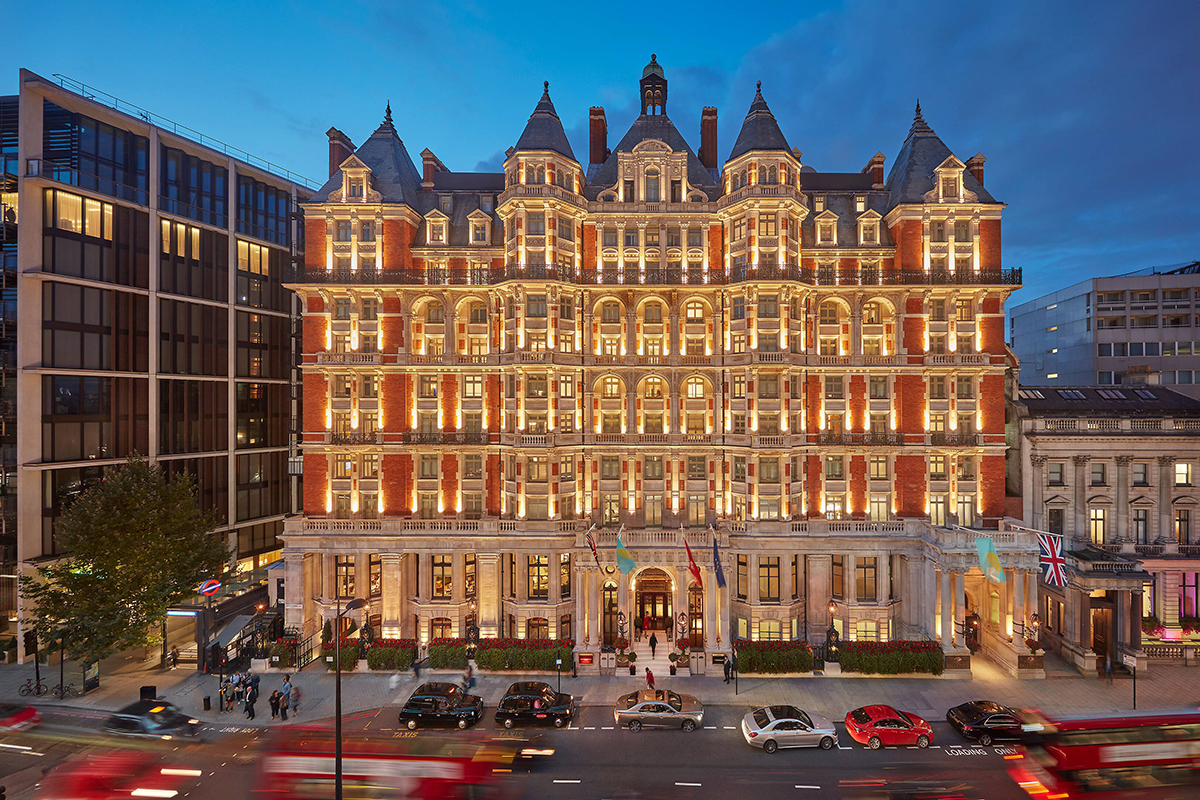
Located in heart of Knightsbridge, Mandarin Oriental London backs onto Hyde Park
Why should I go now?
The last few years haven’t been easy for Mandarin Oriental Hyde Park. Following the hotel’s biggest ever refurbishment, a major roof fire broke out in 2018 causing significant damage and almost two years of closure. It reopened at the end of 2019 with a bright new contemporary look, only to face closure again due to Covid-19.
Follow LUX on Instagram: luxthemagazine
Thankfully, the hotel reopened its doors to guests on 23 July, and for those looking for a luxurious and relaxing summer staycation, there’s no better place; London is at its best in the summer and the hotel boasts one of the best locations from which to enjoy it. The back entrance of the hotel (reserved for the Queen) opens directly onto Hyde Park where you can jog, picnic, meditate, horse ride, row on the Serpentine and wander through Kensington gardens whilst the other side (the public entrance) sits opposite Harvey Nichols. Down the road is Harrods and South Kensington, Mayfair and the West End are all a 15-minute stroll away.
What’s the lowdown?
The hotel was originally built in 1889 as a gentleman’s club and the grand red-brick Edwardian exterior remains beautifully preserved as a relic of the city’s past. The interiors, however, have been given a hefty make-over by designer Joyce Wang. A light, floral colour palette reigns throughout with flashes of gold and copper detailing; flower-shaped lighting features hang from the ceilings and huge vases of fragrant seasonal blooms designed by McQueens stand on almost every surface alongside misty terrariums filled with giant succulents. The atmosphere is joyful, calming and a tiny bit eccentric. Entering through the double doors (held ajar by men in top hats and red blazers) and up the grand staircase, feels delightfully cinematic and otherworldly.
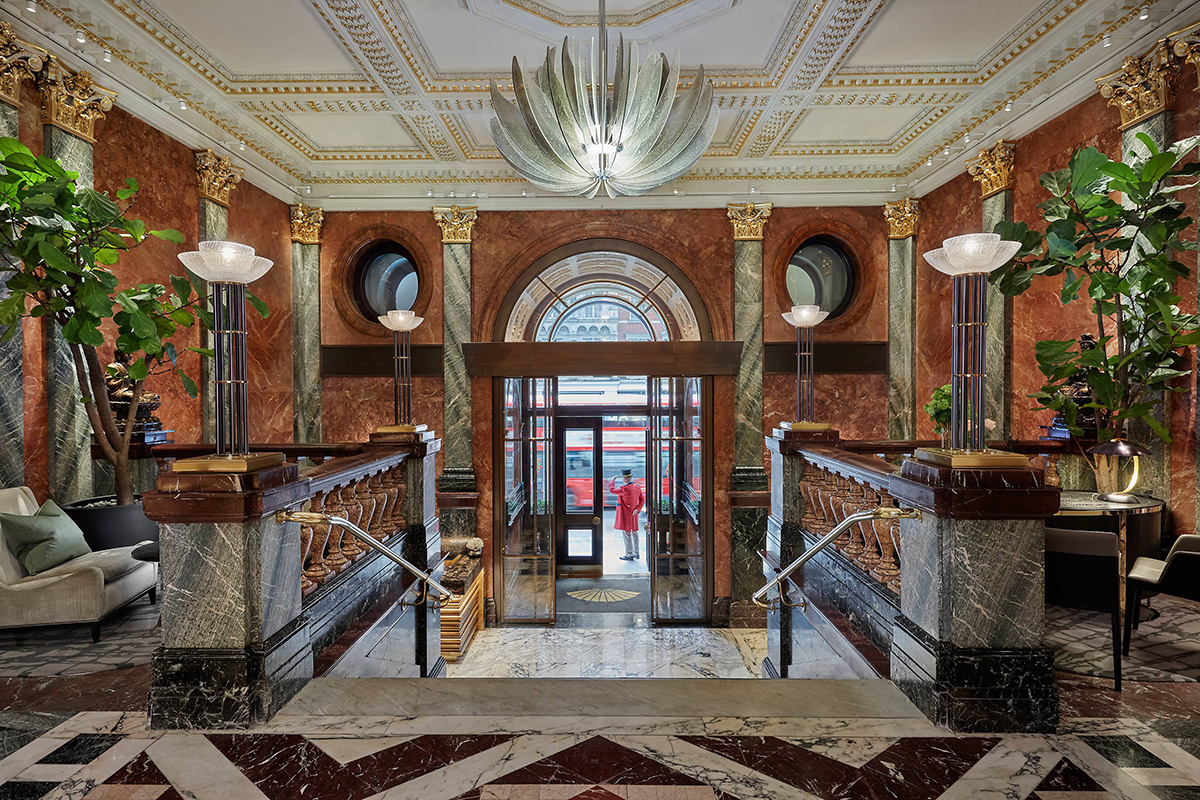
The entrance into the hotel from the street; the Hyde Park entrance is reserved for the Queen
The underground spa is moody and sexy. Redesigned by Adam D Tihany, it features a slim 17-metre heated pool with a good-sized gym, but the real highlight is the wellness experience. The experience begins in the changing rooms where there are a variety of (gender separate) pools, steam and sauna rooms followed by a relaxation room, featuring exceptionally comfortable loungers, snacks and mindful activities such as colouring, breathing exercises and meditation. If you’re having a massage, facial or scrub, this is where the therapist collects you from (it’s worth remembering to arrive in plenty of time), but even without a treatment, it’s a deeply calming space to spend time in. We went twice during our stay and on both occasions, we had the facilities to ourselves.
Read more: CEO of Azumi restaurants Sven Koch on the future of hospitality
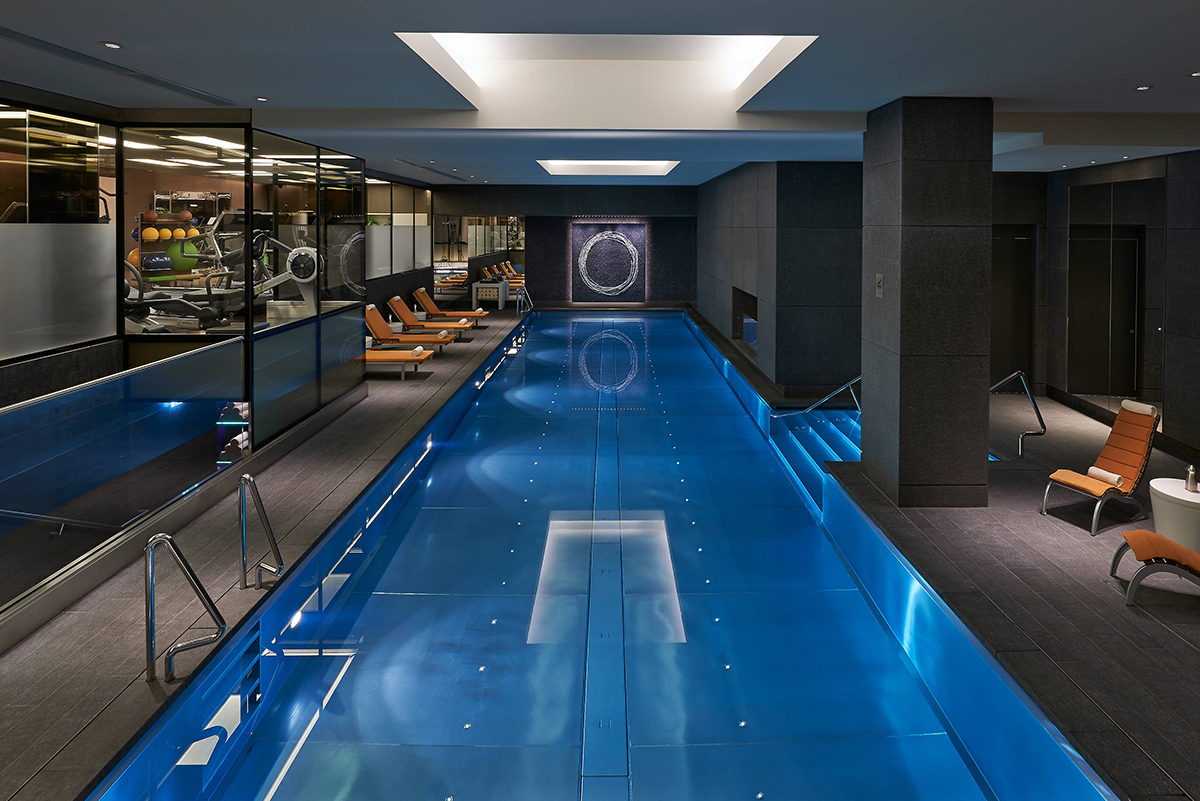
Redesigned by Adam D Tihany, the spa features a 17-metre underground swimming pool
In terms of dining, Bar Boulud is the hotel’s all-day French bistro. Situated on the lower ground floor and accessible by a separate entrance from the street, it offers a relaxed, easy atmosphere and a menu of refined comfort food; our favourite dishes were the rich onion soup and creamy, white wine moules served with thin, crispy pommes frites. Despite its name, Heston Blumenthal’s Dinner serves lunch or dinner in a more high end setting with a range of a la carte and tasting menus and an exclusive chef’s table experience.
The prettiest of the restaurants, however, has to be The Rosebery. Open throughout the day, The Rosebery serves one of the most impressive hotel breakfast menus we’ve ever experienced. Alongside the usual array of pastries and cereals, there are detox juices, bircher museli, exotic fruit platters and beautifully cooked dishes with lots of healthy options. The afternoon tea is also something of an occasion with a bespoke menu designed to match the chosen tea blends.
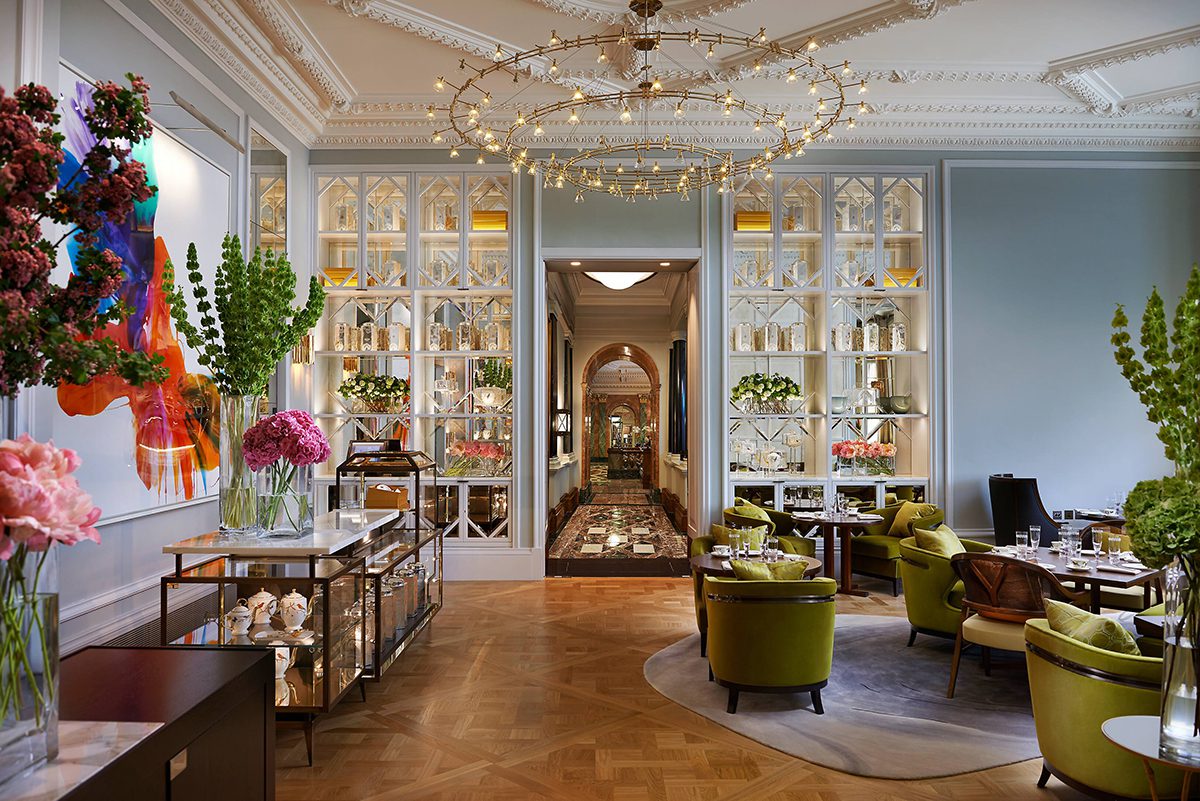
The Rosebery is open throughout the day for breakfast, lunch, afternoon tea and dinner
The service throughout the hotel is impeccable. Every member of staff, even the ones we hadn’t met, seemed to know our names, but we also liked that it never felt intrusive. Many of the hotel’s guests are public figures (we spotted a few familiar faces who we won’t name), so privacy is respected and prioritised.
Getting horiztonal
Our Deluxe room overlooked the streets of Knightsbridge and straight into the windows of Harvey Nichols, which was a somewhat surreal but amazing experience. We especially loved watching the transition from day to night as the sun dipped and the lights began to glow through the windows.
Read more: SKIN co-founder Lauren Lozano Ziol on creating inspiring homes
The room itself felt spacious and airy with pale grey walls, soft-coloured contemporary furnishings and a huge double bed with mountains of pillows. There was a stylish drinks cabinet by the door complete with crystal champagne flutes and a coffee machine, and the marble bathroom featured a powerful walk in shower.
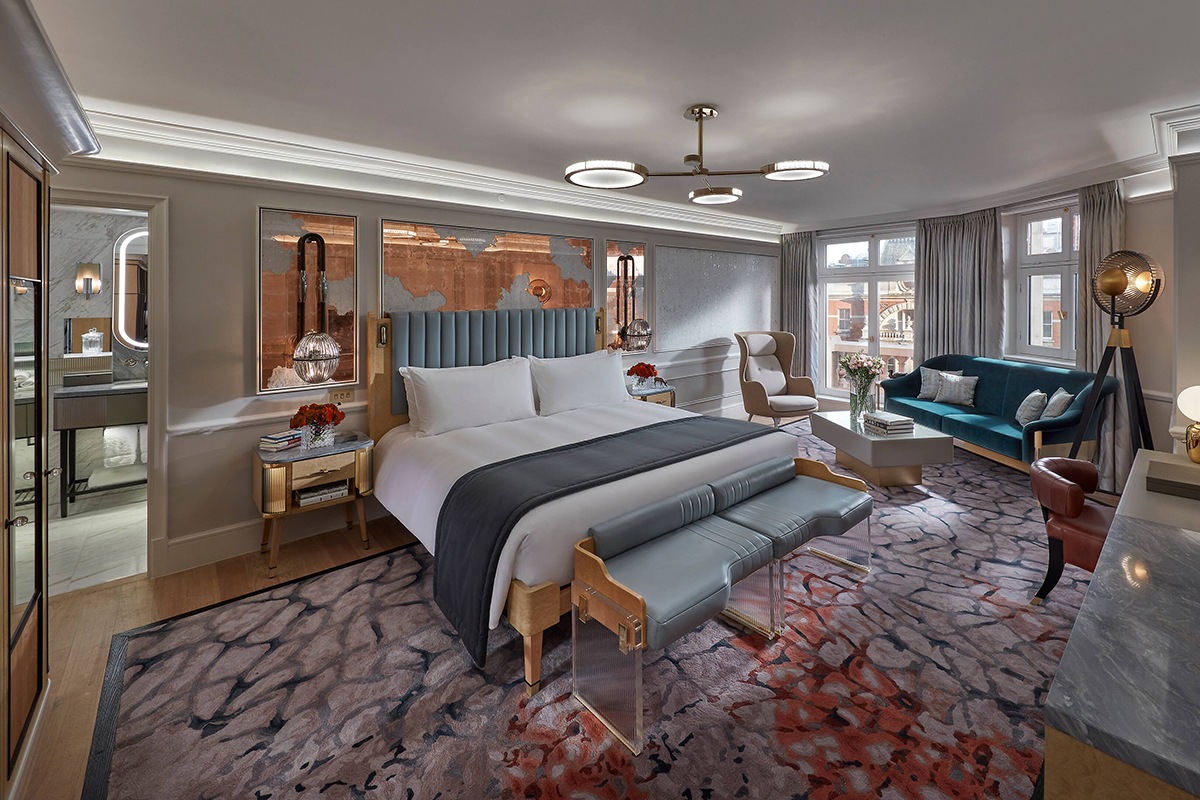
The Knightsbridge Suite
Flipside
While there’s a lot to love about Bar Boulud, the interiors could do with a refresh to match the new, brighter, youthful elegance of the hotel.
Rates: From £740 (approx. €800/ $950)
Book your stay: mandarinoriental.com/london/hyde-park
Millie Walton
Please note: This review was carried out before the breakout of coronavirus and the subsequent closure of the hotel. Dinner by Heston Blumenthal and Bar Boulud are due to reopen soon, whilst the spa currently remains closed due to government guidelines. The Rosebery is open for all-day dining and afternoon tea, as well as 24-hour in-room dining. Please check the hotel’s website for further updates.

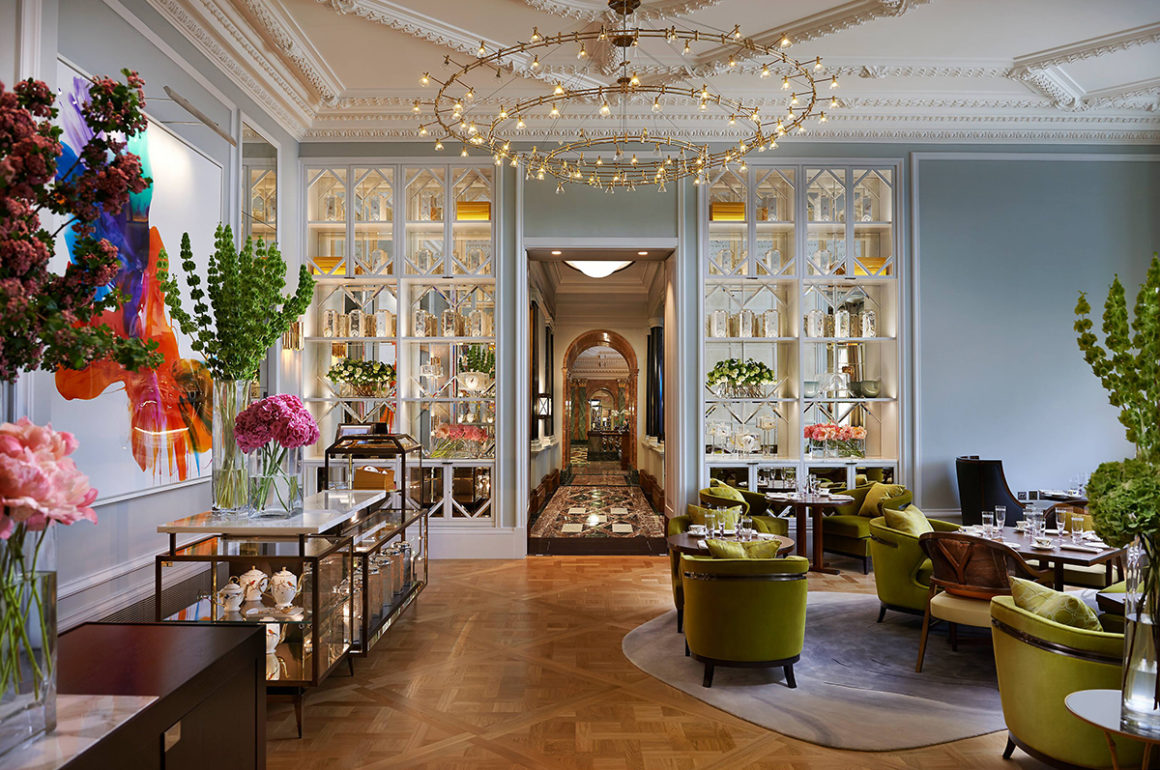
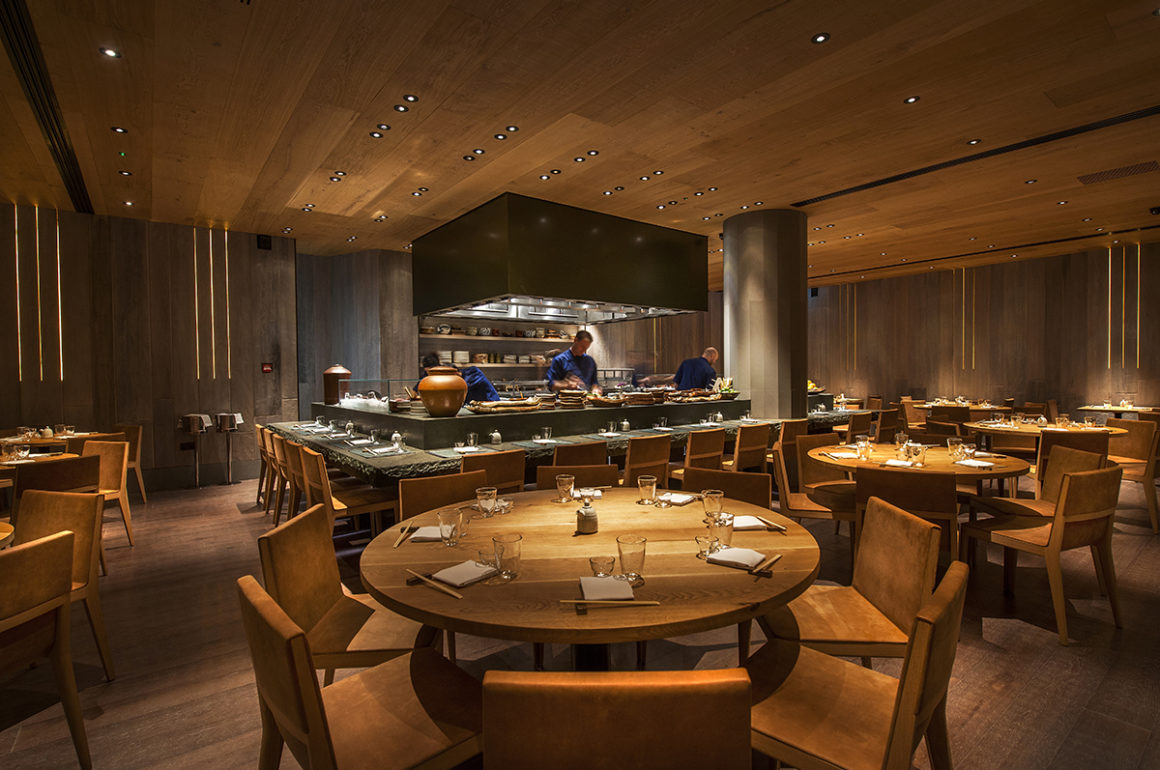
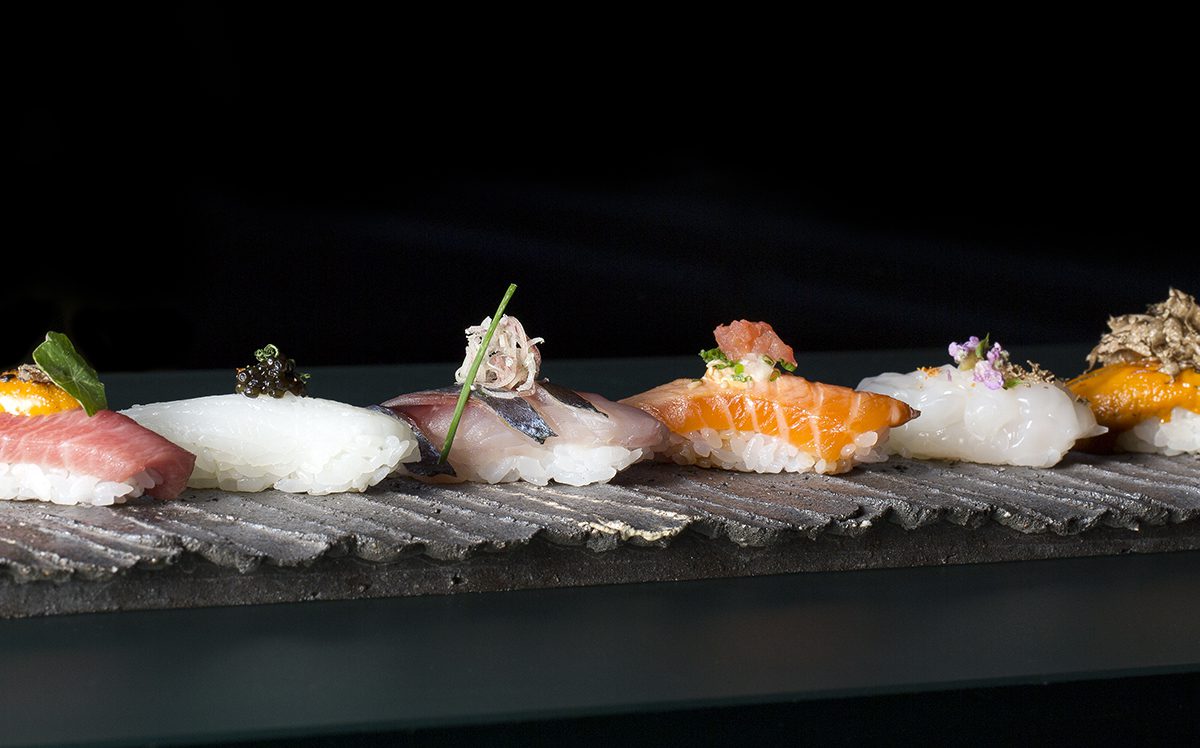

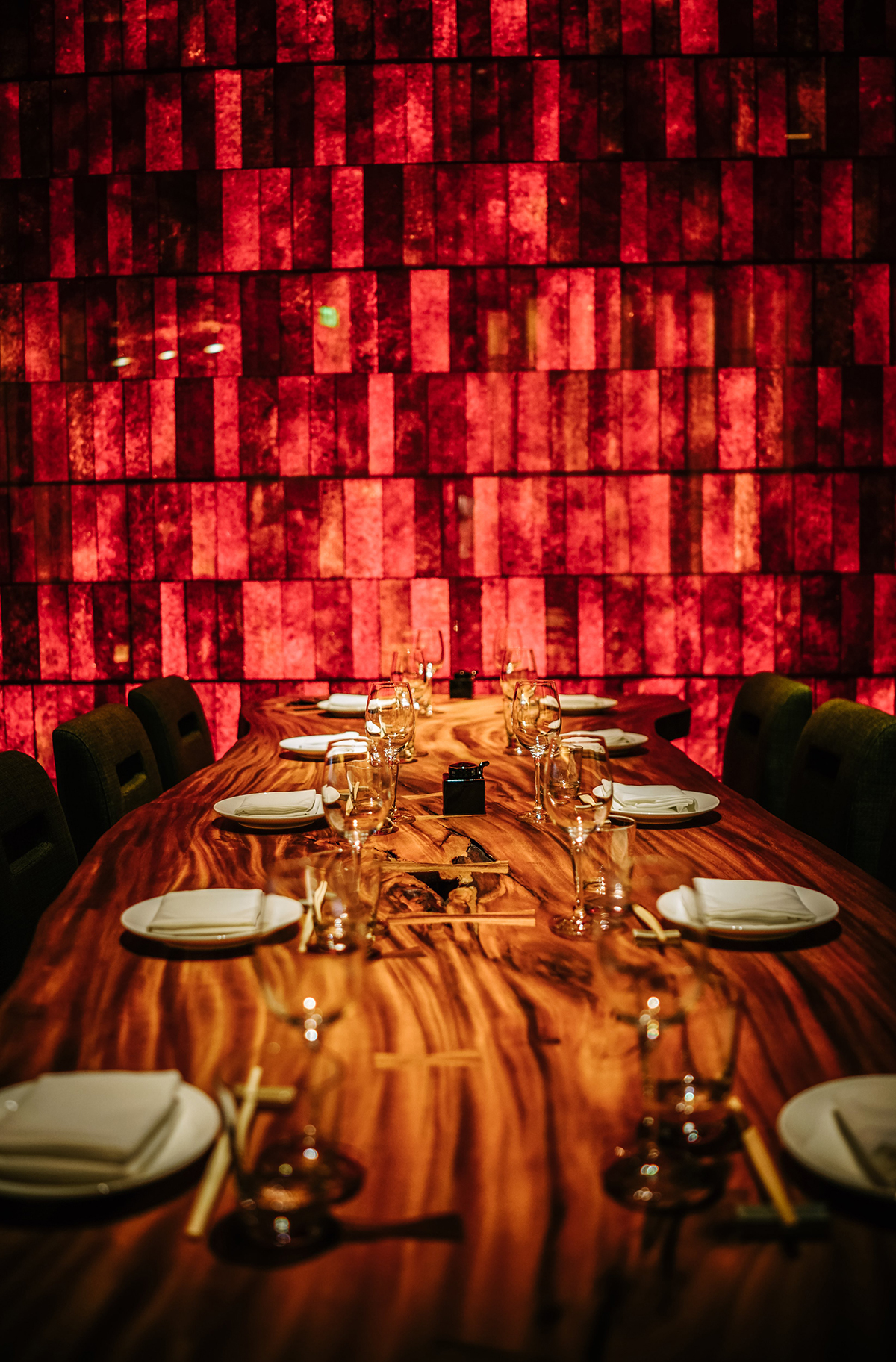
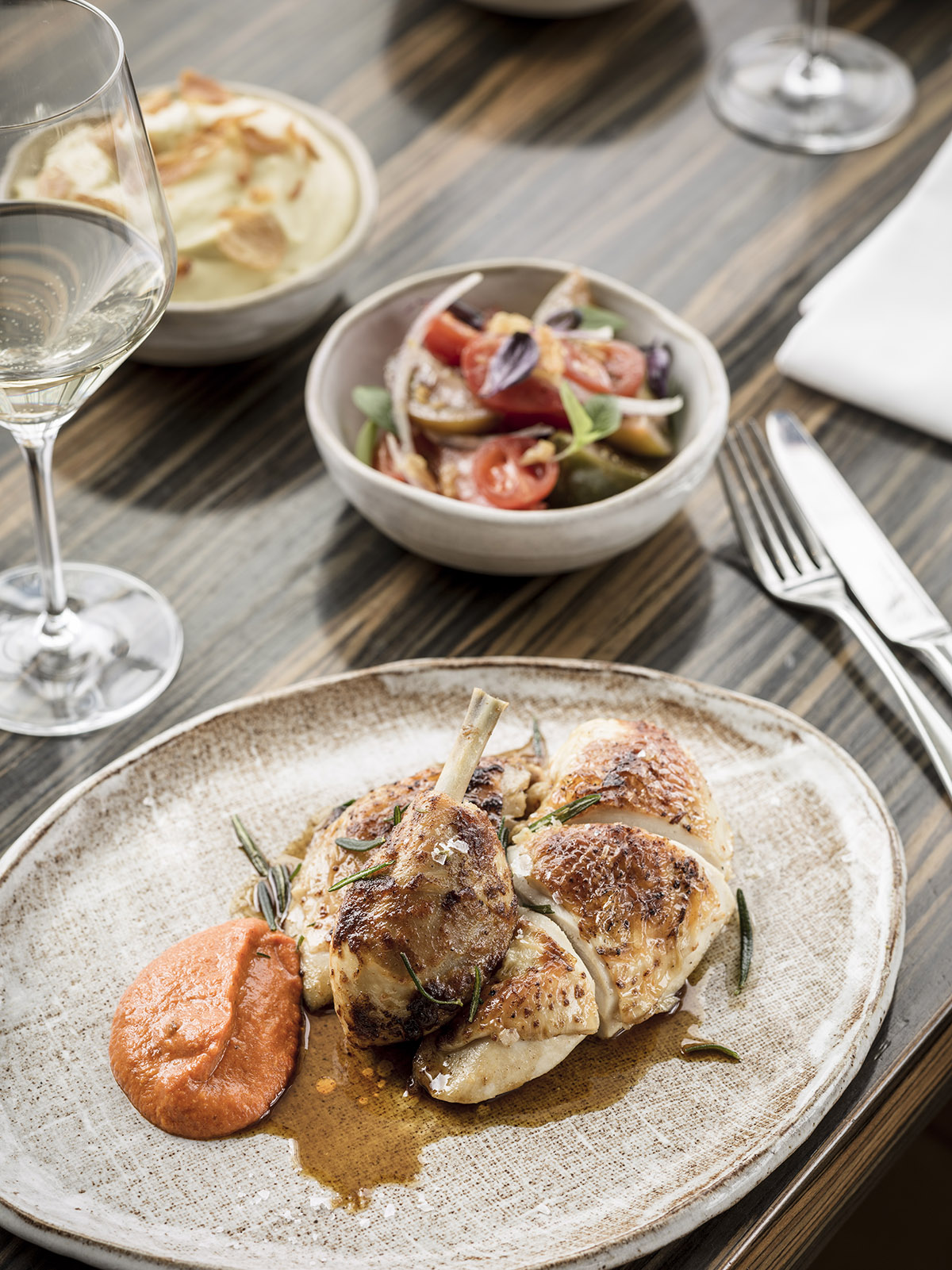
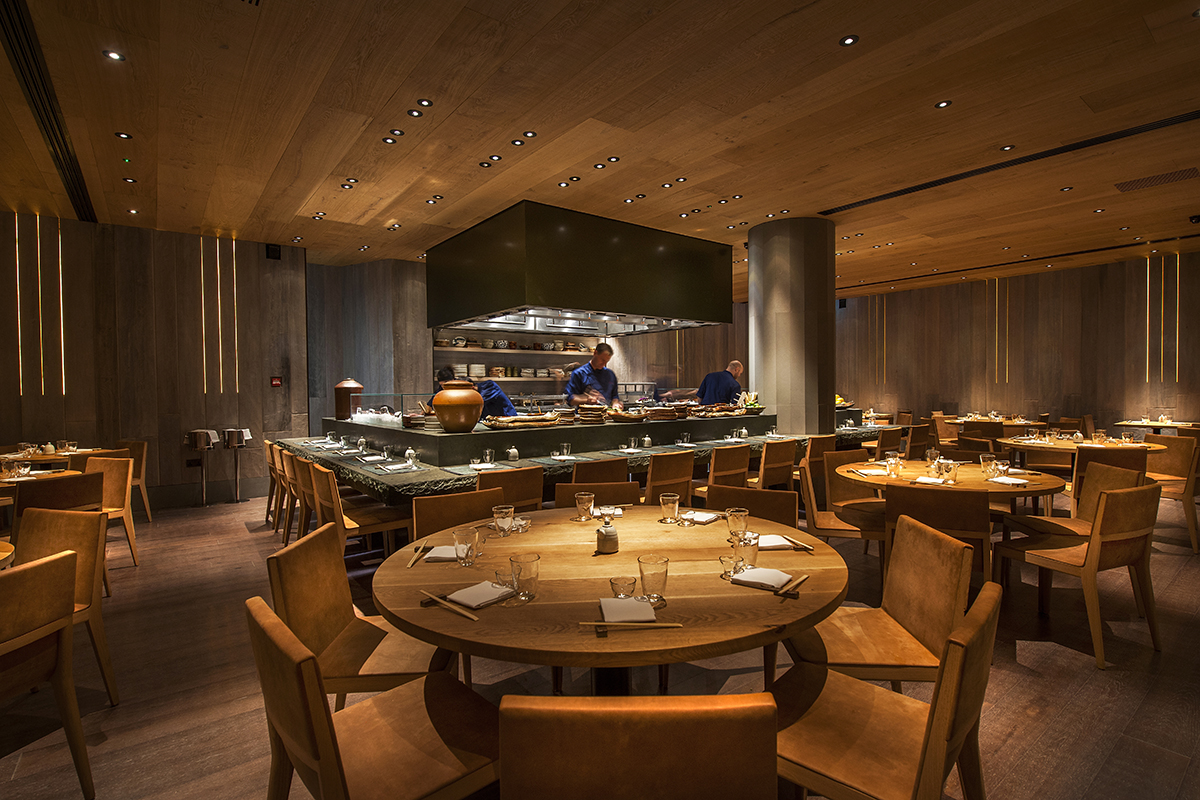
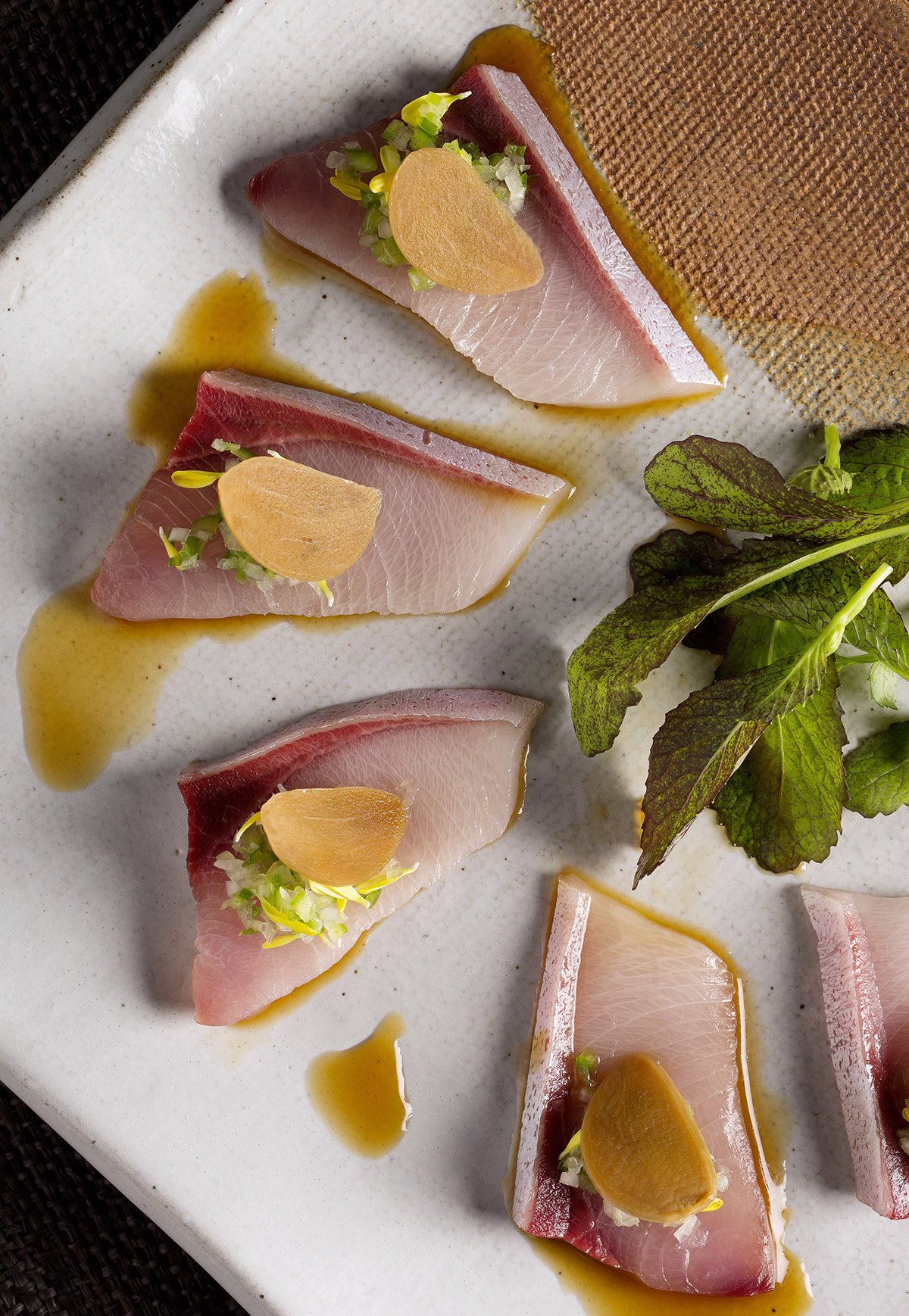





Recent Comments